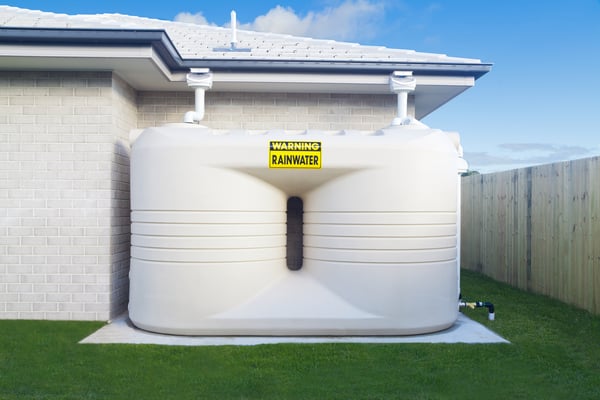The conservation of natural resources is fundamental to ensuring a sustainable future, especially with current population growth and the threat of climate change. Water covers 70% of the Earth, but only 1% is drinkable. As a result, water conservation techniques are gaining popularity.
Rainwater harvesting can be implemented in residential and commercial buildings. It consists of collecting rainwater from the roof or other surfaces of a building and storing it in a tank or cistern. Although rainwater is not suitable for drinking and cooking, it has applications such as washing clothes, watering gardens and flushing toilets. Water savings can increase up to 40% when using rainwater daily, reducing your electricity bill.
Save water and reduce your building's environmental footprint.
How does rainwater harvesting work?
Rainwater is collected from roofs and other surfaces and then filtered to eliminate contaminants like leaves. Water is stored in tanks located on the property and delivered by gravity or pumped.
Rainwater must pass through a dedicated piping system because it is not suitable for drinking. A typical rainwater collection system will consist of the following elements:
- Water storage tank: Its capacity and location may vary depending on the purpose and available space.
- Control unit: They monitor the water level in the holding tank. Some units provide additional information such as water temperature and pump pressure.
- Filters: These keep debris like leaves out of the tank. The level of filtration required depends on the application; for example, the water used for washing clothes must be of better quality than the water used for gardening.
- Piping system: A dedicated piping system should connect appliances like toilets, showers and washing machines.
- Pump: Transports water to where it is needed and is needed for systems buried underground. Gravity-based systems avoided this with elevated storage tanks, but they are not common in domestic installations.
Consider that a building with a rainwater harvesting system will also require a backup water supply. Rainwater is not constant and is unlikely to meet all of your water needs. The building must still be connected to the main water supply.
Uses of recycled rainwater

As mentioned earlier, rainwater is not suitable for drinking and preparing food. However, it can be used to:
- Sanitary discharges
- Washing clothes
- Watering gardens
- Washing cars
- External cleaning of buildings
Rainwater harvesting contributes to the efficiency and conservation of water use. However, to achieve greater savings, rainwater collection can be combined with water-saving devices such as efficient toilets and washing machines. The U.S. Environmental Protection Agency's WaterSense label indicates that an accessory has been successfully tested.
Benefits of rainwater harvesting
There are many benefits that come with installing a rainwater collection system in a commercial or residential building:
- The rainwater that falls on your property is free and only needs one collection method.
- Reduce peaks in water demand, saving treated water for more important and appropriate uses.
- Rainwater can serve as a reserve water supply in emergency situations.
- Reduce stormwater runoff from a property, mitigating surface water contamination.
- Stormwater harvesting systems can help meet municipalities' stormwater management requirements.
- Replacing the use of municipal water with rainwater reduces the amount of water treated and pumped. This reduces water service costs for the municipality, especially energy expenses.
- Rainwater harvesting can help meet energy standards and water efficiency ratings.
- Water bills can be reduced by replacing municipal water use with rainwater.
- Stored rainwater can be used for fire protection. Insurance companies may offer discounts for on-site water storage.
- Rainwater harvesting is a viable water source in areas where other sources are unavailable, have poor water quality, or are too expensive to develop.
- Rainwater can be transformed into drinking water when properly filtered and disinfected. It does not contain many chemicals used in municipal treatment plants.
Rainwater harvesting and water conservation
Rainwater harvesting offers an opportunity to save water on any residential or commercial property. However, the water collected is not being used properly if the storage units remain full all the time. A rainwater harvesting system is only effective if it guarantees the use of water, delivering it with a dedicated piping system.
By contacting professional plumbing engineers, you will be able to find the best rainwater harvesting option for your property. At the same time, you can meet any applicable local codes or requirements.

